Getting Into: Cult Of Luna
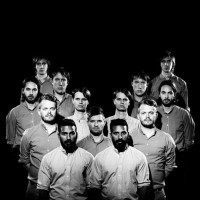
| Written by: | Netzach, musclassia |
| Published: | December 19, 2022 |
There was a time, a terrible terrible time from the big bang right through to the verge of the end of the world, in which post-metal didn’t exist. Cult Of Luna didn’t necessarily instigate this change; Neurosis were the musical originators of post-metal, while Isis subsequently went and effectively defined the style in the early 2000s. However, while both those American bands have become consigned to the past for one reason or another, it is the band from across the Atlantic that has come to take the leading position in the post-metal scene. The early stages of Cult Of Luna’s career draw a clear parallel to that of Isis, a band who were both an influence and a contemporary, but as the years have gone on, the Swedish ensemble led by Johannes Persson have both further defined and subsequently redefined the standards of the genre, with various evolutions taking their signature musical essence in a number of compelling directions. On the eve of the band’s 25th anniversary, there has never been a better time to Get Into Cult Of Luna, so let’s explore the many albums in their illustrious career to date.

Like many bands, Cult Of Luna started off their career with a self-titled record. I’ve personally always found some notable parallels between the early career of this band and the discography of Isis, and especially in the way that their first albums (Celestial for Isis, this one and The Beyond for Cult Of Luna) are more caustic and menacing than the music that followed. For a start, there are no keyboards on these first 2 albums, with Anders Teglund only joining in time for Salvation. Beyond that, there is far less of the loud-soft dynamic exploration here, with the music predominantly taking the form of a slow, imposing, emotionally cold sludge. There is some exploration, most notably on the 14-minute “Sleep”, and some hints of melody do seep into “Dark Side Of The Sun” and other tracks, but for the most part, Cult Of Luna is a decent prototype that is nevertheless lacking the pull that the band’s subsequent albums, on which the band had unlocked their full potential, manage to deliver.
Cult Of Luna’s debut album is the least representative of the band’s later trademark style, but is still a very ambitious album in its own regard. A fan of later albums might be surprised to find Cult Of Luna very light on the expansive, beautiful atmospheres the band would go on to create, but it is to this album we trace the band’s roots in the post-hardcore scene which at the time was dominated by names such as Neurosis and Isis - the latter’s early-era influence particularly evident here. The lack of keyboards limits the band’s options in terms of creating soundscapes, and the riffs are more abrasive in style than they are majestic as on following albums. Cult Of Luna has not yet formed as we know them yet on here, but on the long and dynamic “Sleep” there is some experimentation with dynamic atmosphere-building, with a violin added for good measure. Not a bad album, but not the best place for getting into the band.
The Beyond sees a slight broadening of Cult Of Luna’s sonic palette, but ultimately it represents at most a minor change of direction from the self-titled debut. One of the best examples of the more contemplative side of the band coming through is on “Circle”, a subdued slow-burner that retains a touch of melancholia in the heavier passages. At 75 minutes, it does push some of the limits of one’s patience, but on a track-by-track basis, it’s a fairly impressive album; the likes of “The Watchtower” and “Leash” have gnarly riffs, and the longer tracks “Genesis” and “Further” make a good impact.
The Beyond raises the ambition levels to the point that the album turned out quite bloated, at well over an hour long. Sure, Cult Of Luna would go on to do the improbable and create the 80-minute beast that was A Dawn To Fear, but much later in their career. In terms of production, it’s an improvement all around, especially in the vocals. Stylistically, it is similar to the debut but with a bit more of the cinematic post-rock dynamics and hypnotic jams that would start to crystallise in full on this album’s follow-up, Salvation. Particularly on “Circle” we start to hear thus-far the best example of what the band would evolve into, with its introspective sort of sad-country vibe that comes off as influenced as much by Isis (particularly “C.F.T.” from Celestial) as by some of Pink Floyd’s more rural-sounding material.
Continuing my side-by-side comparison of Isis and Cult Of Luna’s streaks in the 2000s, Salvation is, to some degree, to Cult Of Luna what Oceanic was for Isis: a step towards a slightly lighter and more atmospheric approach compared to the preceding records. I don’t consider Salvation to be the equal of Oceanic; of all the albums considered amongst the best from Cult Of Luna, I feel Salvation is probably the most uneven. Some of that comes from how much time it gives to really quiet, sedate musical passages, and how some of them don’t quite manage to sustain interest. When it’s on form, though, this album is a monster. “Echoes” is a perfect opening song, building tension magnificently in its opening minutes, while “Leave Me Here” is a great display of bringing together great loud and soft contrasts. I’ve also always had a huge appreciation for “Waiting For You”, an 11-minute song with 2 lines of dialogue, both in the last 90 seconds. The way this song slowly, slowly, slowly intensifies across minutes and minutes demonstrated early on how great a judge of momentum and progression Cult Of Luna could be.
Salvation is where we find Cult Of Luna really starting to hit their stride, and start to turn into their unique brand of post-metal machinery they are still known for today. While Cult Of Luna and The Beyond are far from bad albums, it is on Salvation the band really starts to experiment with a wider audio palette; while my best memory of The Beyond will always be the enchanting country twang of “Circle”, here Cult Of Luna manage to create a unique identity for each song, making the entire album memorable and recognisable in its own right. There’s the pop-post-metal hit-worthy “Leave Me Here”, which remains one of the band’s most popular songs, there’s the ultra-unexpected lounge jazz piano sections in “Into The Beyond” (which remains one of the band’s finest songs), the excruciating doom of “Echoes”, and last but not least, the absolutely incredible sludge jam that is “Waiting For You”; when that wah-wah guitar enters after the lengthy synth padding to the main riff that’s more or less being repeated for all of 10 minutes, Salvation hits a full-score mark for just a little while, and “Waiting For You” is the song I will always connect this album with. It’s glorious. Salvation would go on to begin the hype for this band, and while they have made even better albums since, it’s easy to see why Salvation was the first release to really put Cult Of Luna on the map.
Somewhere Along The Highway represents a maturation of the Salvation blueprint that is comparable to the evolution that Isis underwent from Oceanic to Panopticon, but in this instance, the step forward was far greater. There is a far warmer, more earthly feel to this record, which comes through clearest when comparing the sparsity of the quieter sections of Salvation to the melancholic emotion of similar passages here, whether it be the beautiful album opener “Marching To The Heartbeats”, the lush post-rock passage in “Finland”, or the sombre nature of “Dim”, a song that echoes the approach taken on the previous record’s “Waiting For You”, but delivers it in a more layered, overwhelming manner. Beyond this, the heavier passages feel less harsh, but equally, if not more so, compelling, and the monolithic closer “Dark City Dead Man” is an unparalleled exercise in tension, release, suspense and atmosphere. After all these years, I still struggle to sit through the entirety of the glacially paced “And With Her Came The Birds”, but aside from that, Somewhere Along The Highway is a landmark in post-metal that has few peers and no superiors.
Okay, so, this album isn’t really known for creating divisive opinions - it’s generally regarded as a definitive highlight of the band’s career and the album that turned them into a household post-metal name for decades to come… However, I have to be the annoying dude that comes out and calls Somewhere Along The Highway overrated compared to much of the material that followed. Sure, I love “Finland” as much as the next listener, and both “Back To Chapel Town” and “And With Her Came The Birds” are fantastic cuts in their own right… But then follow three songs, all exceeding 10 minutes, parts of which I cannot even remember no matter how much I try to. I can, however, attest that Somewhere Along The Highway is where Cult Of Luna most prominently showed their lofty ambitions for making their own brand of atmospheric post-hardcore, and started to explore the concept of concept albums, which would turn out to work out really great for them in the years to come. In fact, between Somewhere Along The Highway and A Dawn To Fear, all of their albums have been quite high-concept, and all of them have been absolutely majestic. I relate to this album mostly as the time and place where Cult Of Luna started to really find the best medium to work in - and we have so many following masterpieces to thank for it.
The last comparison I will make with Isis is drawing a parallel between Eternal Kingdom and In The Absence Of Truth, two albums that are the oddly divisive records amidst a sequence of classic albums in each discography. Curiously enough, both were arguably the first record from each band that I properly clicked with, but I feel less inclined to listen to either of them than most of the other albums in each discography. In the case of Eternal Kingdom, which was the Cult Of Luna album that made the first real impact on me, the songs were mostly shorter, which was accomplished by reducing the amount of prolonged atmospheric exploration that featured on the two preceding albums, instead opting for a generally heavier approach. It mostly works dividends; the album starts off very solidly with a trio of quality records, from the brooding “Owlwood” and the curiously otherworldly title track through to the amazing “Ghost Trail”, the one song here to really take its time, working its way very slowly to a euphorically majestic midsection. Beyond this opening, the closing song “Following Betulas” is quite special in its own way, but the intervening tracks, on the whole, make a far lesser impression than most other songs in the Cult Of Luna library, and it is here where Eternal Kingdom loses some of its shine when placed alongside the albums released either side of it. An album I generally look on with a faint sense of nostalgia these days, Eternal Kingdom is absolutely not one to be overlooked, but perhaps not one to jump into first.
I have a lot of love for Eternal Kingdom. Probably more love than most people have for this album. It was the album which got me into Cult Of Luna and it was the album they toured for when I first caught them live - but I admit it is not their finest work, (if there’s such a thing as) objectively speaking. However, parts of Eternal Kingdom are pretty unfuckwithable, such as the opener “Owlwood”’s ominous sludge, the incredible accelerando towards the end of “Ghost Trail” (man, it can’t be easy timing all that perfectly live, and this song was the first live performance I saw by the band), or the grand finale of “Following Betulas” with its ever-shifting sections and menacing horns blaring Eternal Kingdom into its last moments. In fact, these three songs I’ve mentioned here are no doubt some of Cult Of Luna’s most memorable moments, and even if the middle part of the album comes off as somewhat uninspired, I still prefer this to Somewhere Along The Highway. Call it nostalgia or bias if you want, I’ll just call it “wot I think” and end on that note. Not a bad place to start - HOWEVER...
Following the increasingly earthly feel of the last couple of albums, Cult Of Luna shifted from rural to urban environs, taking inspiration from the 1920s silent film masterpiece Metropolis when crafting Vertikal. From the monochrome artwork through to the increased role for synths and electronics, as well as the stomping mechanical rhythms in songs such as “Synchronicity” and “In Awe Of”, Vertikal embodies the industrial machine driving the society in Metropolis, and it’s a shift that plays out incredibly. Vertikal is admittedly dominated by 3 songs in particular: “I: The Weapon”, “Vicarious Redemption” and “In Awe Of”, each of which brings something spectacular to the record, whether it be the ominous fluidity of “I: The Weapon”, the achingly slow evolution and overwhelming climactic moments of “Vicarious Redemption”, or the immediate intensity of “In Awe Of”. It’s hard to think about this album without one’s mind jumping to these songs first, but forcing one to look beyond them, there is still the subtle emotion of “Mute Departure” and grinding march of “Synchronicity” to appreciate, not to forget the haunting closer “Passing Through”, which must surely be the best quiet song Cult Of Luna have ever come up with. For me, Vertikal sits alongside Somewhere Along The Highway and A Dawn To Fear as the three great achievements in the Swedes’ illustrious career.
I’d give this one more stars if I could, but I already gave A Deeper Kind Of Slumber 6/5 stars in my Tiamat article, so I’ll defer to sound judgement here and be content with a 5/5. Cult Of Luna took their sweet time between Eternal Kingdom and Vertikal, and thank Satan for that, because Vertikal is not only the best Cult Of Luna album, it is probably the all-time best post-metal album I can bring to mind. Compared to the earthy, muddy tones of Eternal Kingdom, Vertikal soars with an industrial, sci-fi vibe created both by the superb Blade Runner-ish synth work and poignant lyrics inspired by Fritz Lang’s Metropolis (call it the silent-movie predecessor to The Matrix, for a decent comparison - I tried watching it once but the intertitles were all in German, so I gave up). My favourite cut from Vertikal is “Synchronicity”, where Thomas Hedlund’s drums sound utterly inhumane; the weird beat dominating this song is such an uncanny mix of “what the actual fuck?” and “what would Cult Of Luna do?” at this point that it remains the most memorable song of their entire career, for me. Also of note: literally every other song on Vertikal; even the interludes. From the utterly bouncing “I: The Weapon” through the implausible 20-minute monster that is “Vicarious Redemption” to the glorious, dreamy “Mute Departure” to the “best song Isis never wrote” that is “In Awe Of”, Vertikal contains highlight after highlight, and remains to this day my topmost choice for anything post-metal related. If I’d reviewed this album officially, I’d give it a solid 10. Yes, it’s that good. Now start your Cult Of Luna experience in the only correct way: listen to Vertikal over and over until you against all odds never get tired of it regardless - that’s what I’ve done, and I’ll never regret it.
The first EP of Cult Of Luna’s discography, Vertikal II is primarily comprised of tracks written during the Vertikal sessions that didn’t make the cut of the main album. As you might expect, this does mean that the material on this album is generally at a level or two below what made it onto Vertikal; however, there are still some gems to be found in Cult Of Luna B-sides. My personal favourite cut off this album is “Light Chaser”, a relentless steady march that really embodies the mechanical monotony that the band was drawing from Metropolis, yet does it in an exhilarating manner with its oscillating motifs and gradual intensification. Also of note is the gripping build near the end of “Shun The Mask”, as well as the Justin Broadrick (Godflesh, Jesu) remix of “Vicarious Redemption”, which takes a much daintier spin on the original, with plenty of sadboi post-rock melody.
It’s just an EP, but it’s still the first superfluous release the band has made since their early years. Yeah, “Light Chaser” would go on to become a staple at live shows and for good reason - the hypnotic, entrancing main hook and electronic swagger make for a damn good post-metal song, but the rest of this album I cannot recall for the life of me. Of note is this album contains a song in Swedish, “Oro” (Unrest), which Cult Of Luna would explore further on the Råångest (Raw Angst) split with The Old Wind, but sadly none of these releases score all that high on my post-radar. Cult Of Luna were, at this point, at their best when their songs could be taken in the context of a greater whole (or “A Greater Call”, as we’ll soon encounter), and chopping Vertikal II off of its greater brother does mostly Vertikal service, to be honest, because these are the parts which were edited out for good reason, and their being edited out is probably the main reason why Vertikal is such a damn perfect album.
Mariner in quite a few ways represented a continuation of Vertikal, what with the greatly enhanced use of huge-sounding electronics. However, the band’s gaze shifted from the cold urban surface of the Earth upwards towards the stars, and joining them on their celestial voyage was Julie Christmas of Battle Of Mice and Made Out Of Babies fame. Mariner, as the first major collaborative project of Cult Of Luna, didn’t click with all Cult Of Luna fans, but conversely I know several people who wouldn’t call themselves fans of the band that consider this to be their favourite record by them. Christmas’s vocals bring an obviously huge new dimension to the band’s sound; not immediately so, as they lurk more towards the background of “A Greater Call”, but she makes a huge impact upon “Chevron” and “The Wreck Of S.S. Needle”, and the frenzied, eerie, demented energy she brings at certain points of these tracks is striking. I hold this record at a slightly lower tier than Vertikal as in general it doesn’t have the high points that the aforementioned trio of songs on its predecessor had, but the major exception to this is closing song “Cygnus”, a 15-minute odyssey to the edges of known space that ebbs and flows wonderfully before seeing out the record in a relentless march. Certainly the most unique Cult Of Luna record, Mariner is also among the best.
This is sort of an odd one out, while simultaneously the logical progression of Vertikal. Julie Christmas does a wonderful job of bringing some additional colour to Cult Of Luna’s palette here, with her vocals ranging from playful, childlike nursery-rhyme singing to demented, paranoid screaming - all backed up by the usual percussive post-hardcore vocals that have since long been trademark to this band. Mariner is an excellent collaboration, only marred by some strange songwriting choices. Starting out with “A Greater Call”, we have Julie and Johannes in tandem singing the iconic lines ”We are not conquerors / We float with the tide” over a riff and beat written in much the same fantastic electro-acoustic style as Vertikal, and on “Chevron” Julie gets to show serious chops with such a dynamic range of vocal styles, from whispered chants to lunatic shrieks, throughout. “The Wreck Of S.S. Needle” is one of the band’s most famous songs, and for good reason; much of it thanks to Julie’s entrancing vocal hooks, but on “Approaching Transition” Cult Of Luna makes a bit of a misstep, focusing on a laid-back, jammy piece that might have worked well on another album but doesn’t put the collaborative powers to very good use. They make up for this, however, on “Cygnus”, with its many colossal twists and turns that eventually taper out into the absolutely mesmerising mantra that brings the song to its final moments. I would recommend a Cult Of Luna beginner to check out Vertikal first, and Mariner second, because this album really shows a different side of the band that somehow makes so much sense in the bigger context, and I wish they’d make another album together.
There are very few bands capable of releasing a 79-minute album that don’t leave you cursing their lack of self-restraint. With A Dawn To Fear, Cult Of Luna somehow managed to make an album that you don’t want to hear end. There is scope to acknowledge that “We Feel The End” takes liberties with how long it pushes its very sedate ambience, and to a lesser extent the title track could maaaaybe have been trimmed a bit, but on the whole, every song here justifies its inclusion. “The Silent Man” makes it immediately clear that Cult Of Luna have evolved, with the brash synths of the last couple of albums replaced with shimmering organ sounds and a generally warmer tone coming to the fore, and from there it’s an onslaught of outstanding material, between the likes of “Nightwalkers” (a restless beast that leaves a constant sense of unease), “Lights On The Hill” (achingly melancholic and evocative) and the climactic “The Fall”, a song that brings A Dawn To Fear to a close in a way that very few other ending tracks can rival. Just due to its sheer length, this might not be the first album from the band to try, but it should be a top priority afterwards.
I mean, compared to Vertikal, A Dawn To Fear is actually… pretty much nearly as excellent. This coming from a band with a long career and many albums behind them at this point. A Dawn To Fear is almost 80 minutes long and just barely fits on two vinyls, but for some reason, there’s not a single second on it that I would want to edit out. Well, maybe “Inland Rain” pushes my attention span at times… but nah, really, no. Cult Of Luna here have managed the impossible: to create another masterpiece that’s really way too long for the average listener. As such, A Dawn To Fear should be your second (or third) choice behind Vertikal if getting into Cult Of Luna, but it is no doubt mandatory listening, and probably my second-highest rated album in the band’s discography. Already by the opening chords of “The Silent Man”, you’ll realise that Cult Of Luna aren’t fucking around this time either, and the following “Lay Your Head To Rest” is as strangely poppy as it is crushingly heavy, and a great contender for the band’s greatest hit song (alongside “Leave Me Here”, “In Awe Of”, and “The Wreck Of S.S. Needle”, and… um… others, too, of course). I dare whoever claims to be unmoved by the fantastic, soaring melodies in the 15-minute epic “Lights On The Hill” to come out and say it, and closing song “The Fall” has one of these pulsating, electronically-sounding riffs that really only Cult Of Luna could come up with at this point, and that makes you wonder how the hell nobody else already wrote exactly that particular riff, considering how damn memorable and enchanting it is. Actually, A Dawn To Fear is where Cult Of Luna stopped explicitly making concept albums - they talked about this album as an attempt not to make a concept album, but rather just a collection of good songs, and at least this time around, it worked out very well for them.
The second Cult Of Luna EP, and the second EP from the band that is longer than quite a lot of records considered to be full-length albums, The Raging River makes a strong impression early on with “Three Bridges”, a prowling brooder that is elevated by a quite extraordinarily ethereal bridge. From there, it’s a collection of very respectable songs that perhaps lack the impact of the band when they’re firing on all cylinders, and that these songs were partially leftovers from the writing sessions for A Dawn To Fear does make some sense. Nevertheless, there is plenty to enjoy here, not least the slick closer “Wave After Wave” its danceable beginning and ultimate descent into the mire. Also notable here is “Inside Of A Dream”, featuring the sadly departed Mark Lanegan taking centre stage on a very stripped-down and tender cut.
Yeah, nope, here is where Cult Of Luna sadly starts to lose me. Gone are the majestic, electro-industrial riff-beats I so desperately enjoy, and here are instead a brooding, melancholic kind of post-metal (that at many points veers closer to post-rock) that I honestly have other bands in mind for if that’s what I want to hear. It’s not what I want from Cult Of Luna, and I feel that on The Raging River they start to lose several aspects that have always made them a unique and beloved band in my book. It’s not all bad, of course; I doubt Cult Of Luna could create bad music even if they wanted to, actually. “Three Bridges” takes its sweet time to really get going but pays off in the final sections, and “Wave After Wave” has a bit of that sweet groove that used to define their music up until this point, but this is even less pertinent listening than Vertikal II, and that’s saying something.
Faced with the daunting task of following up A Dawn To Fear, The Long Road North saw the band pursuing a more ‘cinematic’ approach. Cult Of Luna also doubled down on the collaborations, with Colin Stetson, Mariam Wallentin and two members of French band Phoenix making appearances across the record. The album flirts more with post-rock than any album by the group since Somewhere Along The Highway, and the soaring elements in album highlight “Blood Upon Stone” work very well. Other highlights include the up-tempo opener “Cold Burn”, the brooding “An Offering To The Wild”, and the hushed “Into The Night”. On the flip side, this is the first album from Cult Of Luna where I’ve found myself looking at certain passages and feeling like the band were on autopilot while writing them; a song like “The Silver Arc” feels like a summary of songwriting elements that the group consistently draws upon, without really offering anything strong to make itself shine on its own merits. The Long Road North is a great genre album and a good Cult Of Luna record, but it lacks the standout moments or general character of their strongest efforts.
…and on The Long Road North, Cult Of Luna have still sort of lost me. It’s definitely not a bad album; this is a band that at their worst are still much better than most of their competition, but it lacks a certain something that made previous albums so incontestable. Perhaps it’s the way that most of the songs here remind me of less inspired versions of already well-beloved Cult Of Luna songs from earlier albums, or the way there are not a lot of new elements brought to the table (unlike the space synths of Vertikal or the hot organs of A Dawn To Fear), or the way their formula starts to show (after one hell of a lot of years of inscrutability). Something about this album puts me off, and I wish it didn’t, but on the other hand, it was about time this band started showing some cracks in their armour because judging by the streak of excellent-to-perfect albums released between the mid-00s and all the way until now, Cult Of Luna have remained one of the most consistent and reliable bands in all music.
There you have it. Two opinions on (well, mostly) every item in Cult Of Luna’s studio discography. Meaning, there is absolutely no reason for you not to start listening to Somewhere Along The Highway, Vertikal or A Dawn To Fear right now, and come back to us with your opinion on which is this band’s greatest album. It’s admittedly hard to pick a favourite album by a band with such a consistent discography as Cult Of Luna, and who knows, maybe you’ll end up loving one of their other excellent albums even more than one of these two? Fans of heavy and cinematic music really can’t go wrong with this band, and their style has been constantly evolving, making no two of their albums sound much the same. Perhaps this is because they’ve taken their sweet time between some of the albums, or because they’ve based many albums on overarching concepts influencing their sound - such as the earthy, rural vibes on Eternal Kingdom and the mechanical, spacey vibes on Vertikal - or just because Cult Of Luna has time and again shown themselves to be one of the most skilful and influential post-metal groups around. We hope you enjoyed reading about one of our favourite bands, and we hope you enjoy the album-wise best-of playlist we have created for your… getting into Cult Of Luna.
Comments
Comments: 8
Visited by: 124 users
| Sand |
| musclassia Staff |
| Netzach Planewalker |
| Bad English Tage Westerlund |
| nephilim80 |
| Netzach Planewalker |
| Illusion's_Void |
| MarlKarx |
Hits total: 3838 | This month: 87



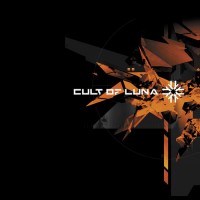







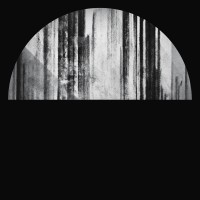

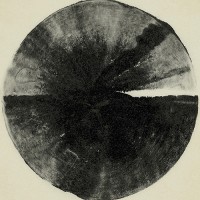
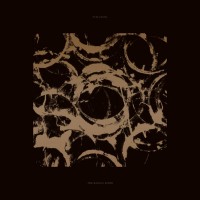
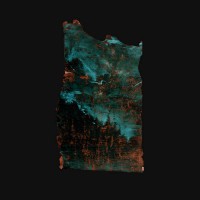
 but at least we had a difference in opinion somewhere to justify both of us taking the time to tackle this amazing band's discography!
but at least we had a difference in opinion somewhere to justify both of us taking the time to tackle this amazing band's discography!
